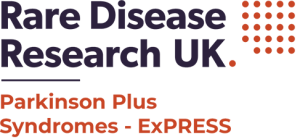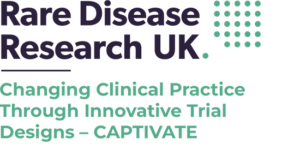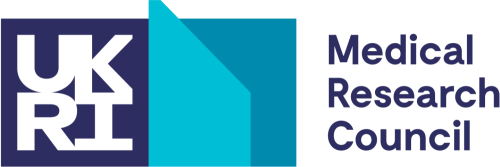Hear From Our Nodes
Discover the diverse perspectives and goals of our research nodes located spread all across the UK, involved in both disease-area-specific and cross-cutting research.
Parkinson Plus Syndrome (ExPRESS)
“We hope that ExPRESS node will help us to diagnose the Parkinson plus syndromes not only more accurately but significantly earlier on. If we are able to better diagnose these rare syndromes earlier on, this opens up opportunities for patients to take part in key clinical trials, and thus positively impact the current progress in drug development.”

Changing Clinical Practice Through Innovative Trial Designs (CAPTIVATE)
“Clinical trials represent the final stage in the translation of potential therapies from discovery to patients. For licensing, potential therapies need to demonstrate safety, efficacy, and benefit compared to current standard of care (phase I, II, and III respectively). Rare diseases have a prevalence of fewer than 1 in 2,000, making typical sample sizes required for classical trials infeasible (definitely trials may need up many thousands). Nevertheless, evidence-based medicine is as important for rare diseases: with between 6,000 and 8,000 of them currently identified, an estimated 1 in 17 of the EU population are affected by rare diseases at some point in their life.The CAPTIVATE node aims to develop innovative trial designs that enable the efficient evaluation of treatments for rare diseases such that decisions can be made with a smaller sample size while ensuring the designs and data are acceptable to people living with rare conditions, regulators, and policy makers. Outputs from CAPTIVATE will provide a step change in the ability of the wider research community to undertake trials in rare diseases.To assist the wider community, the CAPTIVATE node will generate a library of resources specific for trials in rare diseases that will include:
- training materials;
- generalisable trial protocols and other study documentation;
- guidance for set up;
- user-friendly statistical programs and packages for design and analysis;
- case studies and examples.
People with rare diseases expect to receive treatments which have been approved for use in the NHS based on evidence from trials. It is hard to do trials in rare diseases because there may only be a few people affected with the disease who are able to take part. This results in research in rare diseases lagging behind more common diseases. It is also hard to expect people to take a ‘dummy’ medicine (placebo) as part of randomised controlled trials.The CAPTIVATE node will bring together the UK’s leading trial experts with hospital researchers experienced in rare diseases, industry partners, policy makers and patient partners, to develop and discuss clinical trial designs that could speed up the approval of medicines for use in rare diseases. This network of experts will develop new designs and guidelines that we believe will improve the health of people living with rare diseases.”


